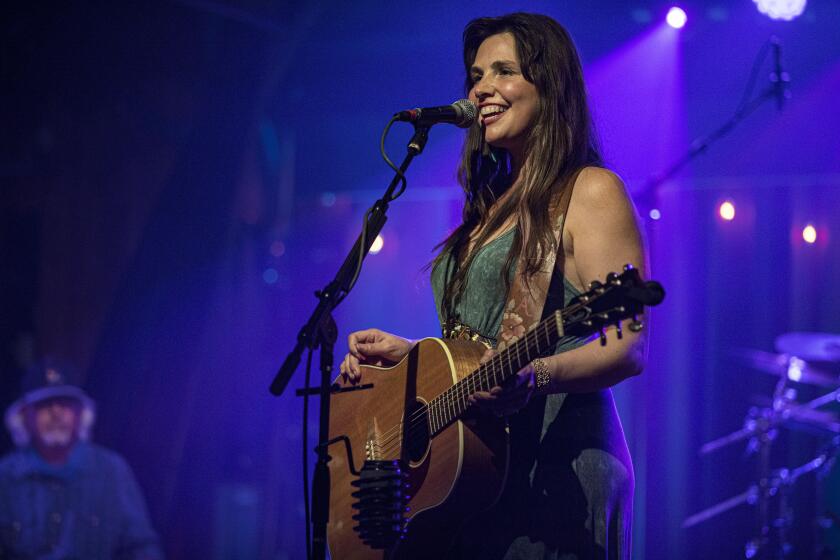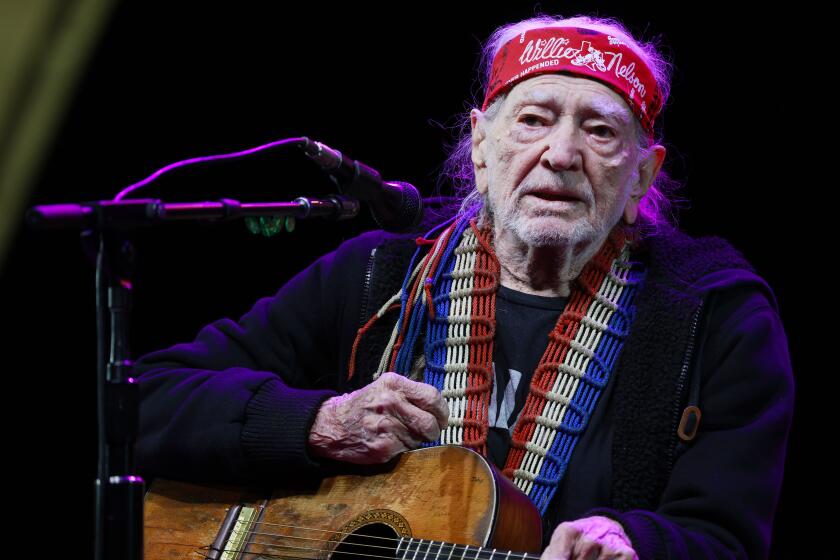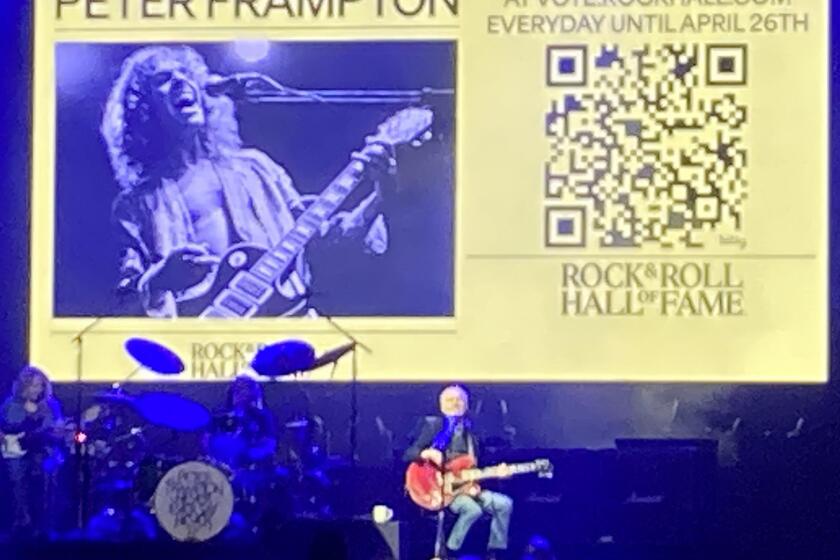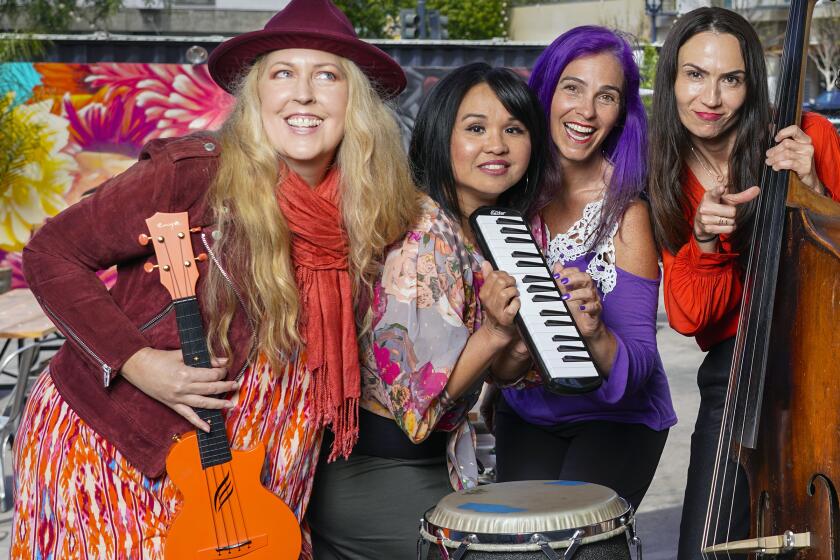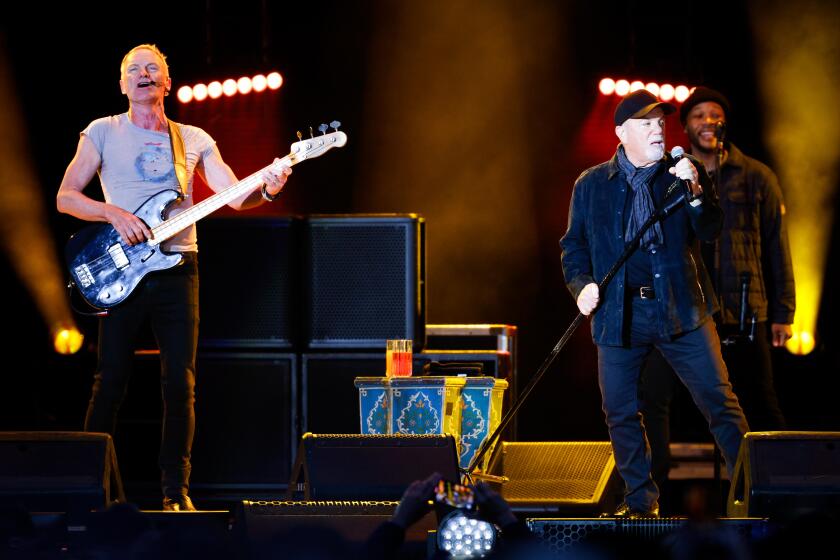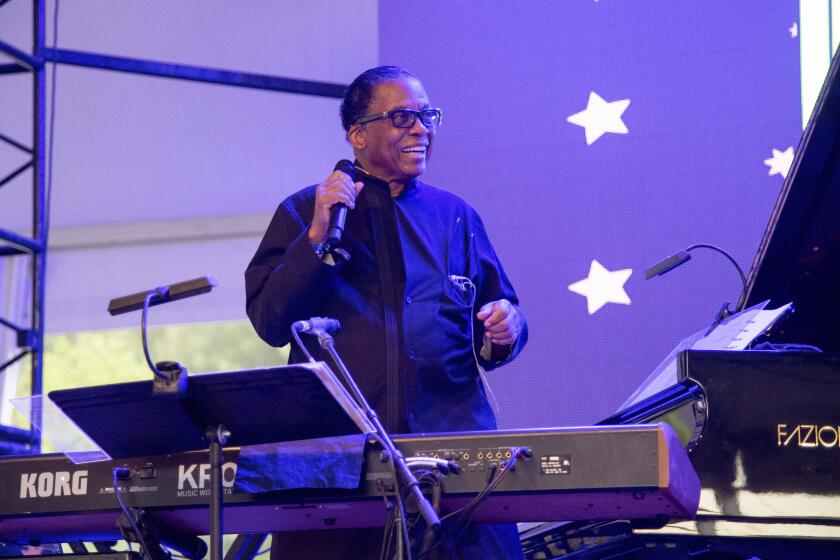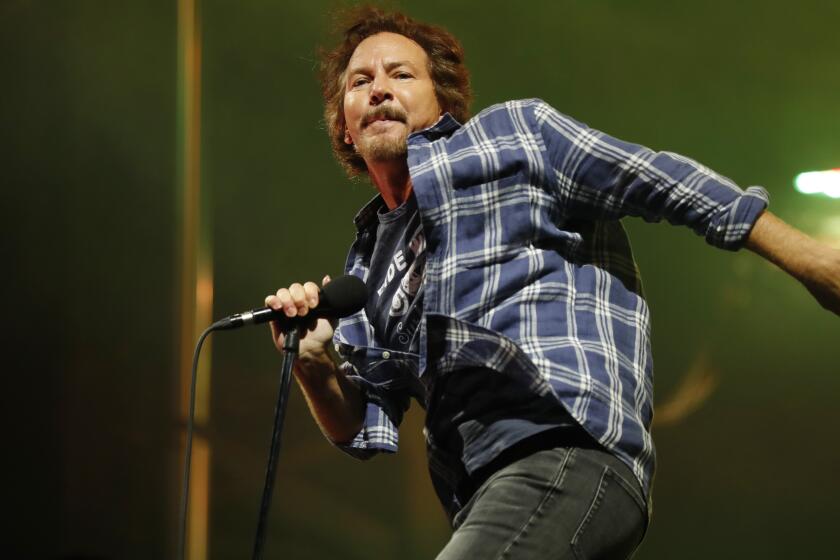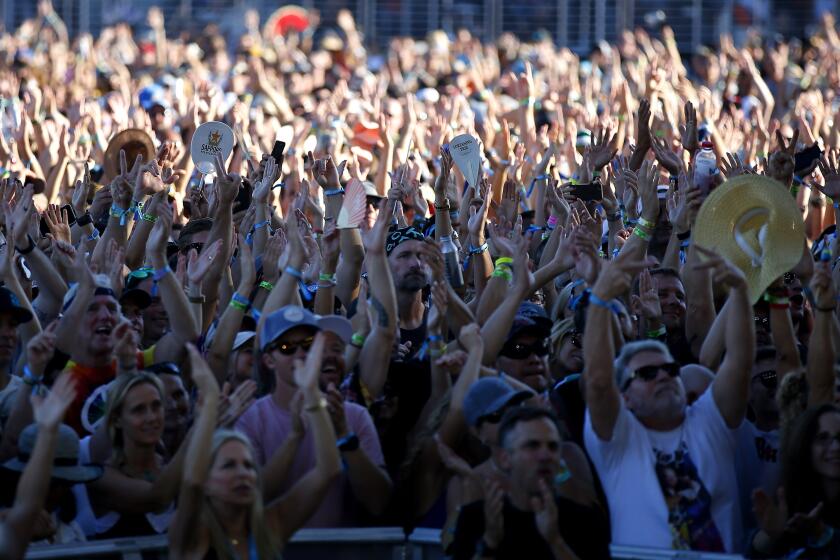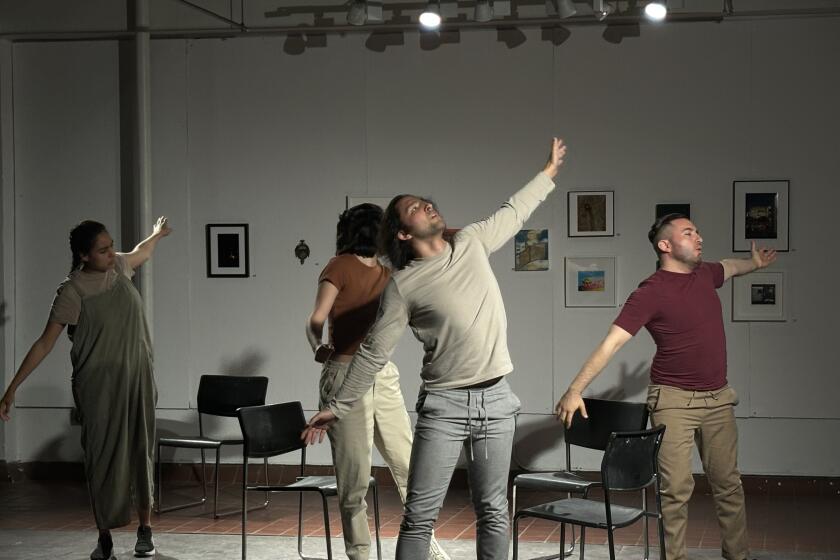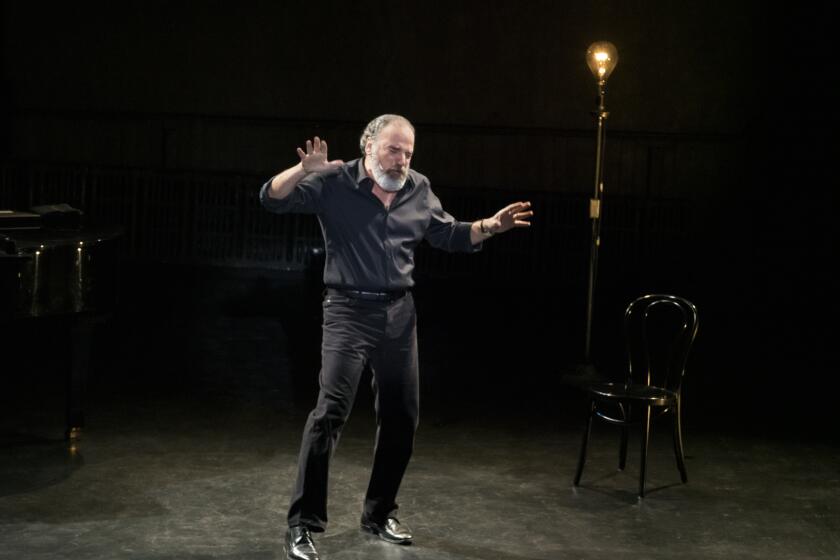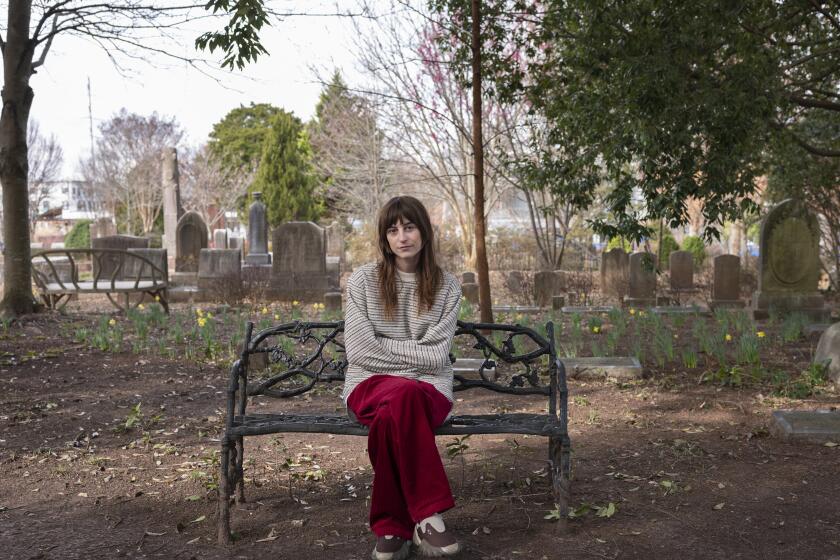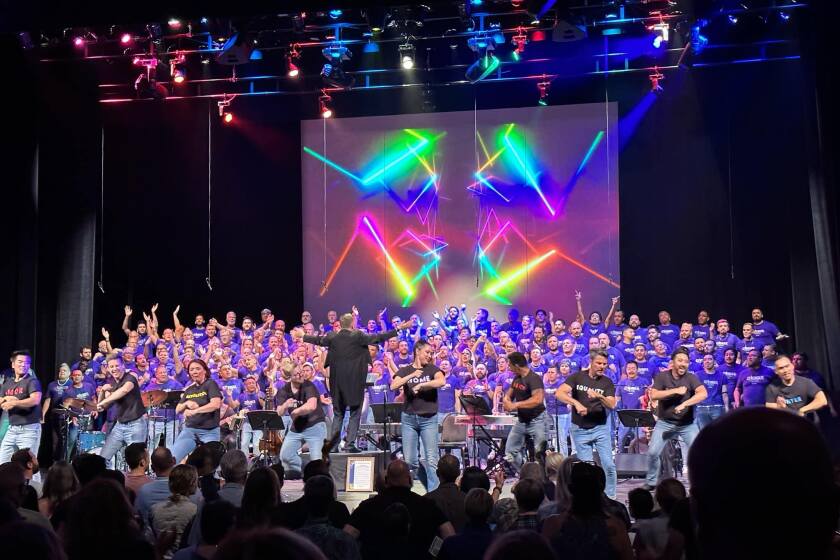Is The Who’s generation coming to an end?
With its two surviving members now in their 70s, time may be running out for this classic-rock band and its peers. “We’re lucky to be alive,” says Pete Townshend.
Is this the end of the line for The Who, the pioneering English rock band that performs here next Friday, May 27, at Valley View Casino Center and Oct. 9 at Desert Trip, the sold-out, three-day festival in Indio that has been dubbed Oldchella?
Should it be?
“We are what we are, and extremely good at it, but we’re lucky to be alive and still touring,” said Who guitarist and mastermind Pete Townshend, speaking at a 2014 London press conference announcing his band’s The Who Hits 50 anniversary tour.
The Who, with Slydigs
When: 7:30 p.m. Friday, May 27
Where: Valley View Casino Center (formerly San Diego Sports Arena), 3500 Sports Arena Blvd., Midway District
Tickets: $39.50-$139.50 (plus service charges)
Phone: (888) 929-7849
Online: axs.com
Lucky, indeed.
This year has already seen the deaths of an apparently record number of music legends and journeymen alike. Many of them were members of the same generation as The Who.
A partial list includes David Bowie, Prince, Merle Haggard, Dan Hicks, Glenn Frey of the Eagles, Maurice White of Earth, Wind & Fire, Paul Kantner and Signe Anderson of Jefferson Airplane, Keith Emerson of Emerson, Lake & Palmer, Lonnie Mack, Dale Griffin of Mott The Hoople and Phife Dawg of A Tribe Called Quest. The list also includes Jimmy Bain of Dio, Denise “Vanity” Matthews of Vanity 6, Billy Paul, Clarence “Blowfly” Reid, Mic Gillette of Tower of Power, Nicholas Caldwell of The Whispers, David Bowie drummer Dennis Davis, and Andy Newman of Thunderclap Newman, whose chart-topping 1969 hit “Something in the Air” was produced by Townshend.
The Who’s original drummer, Keith Moon, and bassist, John Entwistle, died in 1978 and 2002, respectively. Townshend is now 70. Who singer Roger Daltrey is 72.
Like the other iconic Oldchella artists — Bob Dylan, Paul McCartney, the Rolling Stones, Neil Young and Roger Waters — The Who rose to prominence in the 1960s. And, like those other artists, The Who blazed an enduring musical trail that was fueled by brash exuberance, a disdain for convention, a bevy of classic songs and a sense that anything and everything was possible.
Yet while Dylan excoriated the conservative establishment and the military-industrial complex with his scathing “Masters of War” in 1963, The Who arguably struck an even more defiant chord with its electrifying “My Generation” in 1965.
The song’s tell-tale line — I hope I die before I get old — captured the zeitgeist of youthful angst and rebellion perfectly. It sounded no less vibrant when The Who performed it at the landmark Woodstock festival in 1969 for an audience of half a million young people.
Enduring template for garage-rock & punk
Of course, in The Who’s case, “old” at the time essentially meant almost anyone a few years beyond their teens, let alone aged enough to be the parents of teens. Townshend and Daltrey are both, incidentally, grandparents.
“My Generation” was written by Townshend on May 19, 1965, the same day he turned 20. The song brimmed with the angst, anger, self-doubt and passion that fueled his best early work.
With Townshend’s trademark power chords, Daltrey’s snarling vocals, Entwistle’s lead bass, Moon’s manic drumming and The Who’s full-throttle sense of youthful intensity and abandon at full throttle, “My Generation” struck its target dead-center.
The song was written specifically for the young Mods in England, who had embraced the band for mirroring and amplifying the Mods’ look and sensibility. Nevertheless, “My Generation” resonated with young people around the world with a degree of fury and brashness that helped create a template for both the garage-rock of the 1960s and the punk-rock revolution that would follow a decade later.
What The Who could not have imagined, however, was that the band would endure past the end of the 1960s, let alone still be going five decades later, after numerous break-ups and reunions.
“You don’t want to look at yourself going on about being 15, when you’re 105,” Townshend said during a 2012 Who press conference in London.
True enough, especially given how many veteran rock acts approach self-parody on a regular basis without even realizing it. And churning out decades-old songs, while lucrative, can be creatively stifling, as Townshend has noted.
“I could not have done any more (tours), and made it very clear that I would do no more big tours without new music,” Townshend said in a Union-Tribune interview in 2007, one year after the release of “Endless Wire,” his fabled band’s first album of new music since 1982.
“I would have done some shows for various reasons, possibly to make a bit of money, or for charity, but touring today is politically incorrect, bad for the ecology, selfish and entirely Western. But if you throw some new art into the mix, it feels justified to me; this new music might suggest a way to change, might inspire a new and poetic way to evolve. Of course, it might not, but in the past my music has been attributed with special powers to help people through difficult times.
“We'll see what happens with the new stuff. It's helping me.”
Modern maturity?
But “the new stuff” is now 10 years old, with no sign of a new album by The Who — or The Two, as some refer to the Townshend, Daltrey and their polished backing band. And the uneven “Endless Wire,” while welcomed by some fans, swiftly faded from memory.
The Who’s set list for its current tour does not include any songs from “Endless Wire.” But songs by The Who were used as the themes for not one, but three, “CSI” TV series: “Who Are You?” on “CSI: Crime Scene Investigation”; “Won't Get Fooled Again” on CSI Miami”; “Baba O'Reilly” on CSI New York”; and “I Can See For Miles” on CSI Cyber.” Meanwhile, the 1982 Who song “Eminence Front” was featured in a series of 2015 TV commercials for GMC trucks.
But the cachet of “My Generation” — and what its title evokes by name and implication alone — has taken on dimensions Townshend and Daltrey surely never envisioned.
Witness the American Association of Retired Persons, which in 2001 debuted a magazine called My Generation, specifically to target baby boomers. (In 2003, the AARP merged My Generation with its then four-decades-old magazine, Modern Maturity, under the title AARP The Magazine.)
So far as can be determined, Townshend and Daltrey have yet to appear on the cover of AARP The Magazine.
But fellow Oldchella performer McCartney was featured in a 2006 cover interview with the AARP. The former Beatle addressed the phenomenon of aging rock stars head-on in a 2005 Union-Tribune interview, saying:
“When we started with the Beatles, we gave ourselves about 10 years. We thought it would be entirely unseemly after that. We had this wonderful, youthful idea that life ends at 25. But once we got to 25, we found we were just hitting our stride. And then we got to 30 and found we were still kicking.
“And I think that’s the interesting thing about it. When I was about 16, there was a guy in John’s art college who was 24, and I thought he was very old. I’ve since been proved wrong. He was actually very young. But, relative to me, and my perspective then, that was sort of (ancient).”
Parsing the meaning of “My Generation”
Townshend and Daltrey are performing “My Generation” at each of their current shows, although — citing their advancing years — the two vowed in 2014 that The Who’s current concert trek will be its last major tour.
Soon thereafter, the 2015 fall leg of the band’s tour (which was to have kicked off in San Diego last September) was rescheduled for this year after Daltrey was diagnosed with viral meningitis.
As for the meaning of “My Generation,” The Who’s singer has changed his tune over the years.
“Although Pete’s songs were written when we were young and teens, you don`t have to be a teen to perform them,” Daltrey insisted in a Union-Tribune interview in 2000, when he was a comparatively young man of 57. “It’s an observation on the youth of adolescence, and you could sing them when you’re 19 or 90.”
Asked to elaborate about “My Generation,” The Who’s singer said: “No one seems to understand the real sentiment of it. Oldness is a state of mind; it has nothing to do with years. It’s like, what is old, if you’re not talking about a space in time? It’s about an attitude.”
Did Daltrey regard “My Generation” the same way in 1965?
“I think I did,” he replied. “In those days, our managers — Kit Lambert and Chris Stamp — were old to us, and we found them refreshing and they were our guiding lights. You didn’t used to think about things like that. What Pete thought as he wrote it, I don’t know. I never talk to him about things like that.”
The same question was posed to Townshend in a 2002 Union-Tribune interview.
“You know,” he said at the time, “I don’t know what I was saying when I said, ‘I hope I die before I get old.’ But I know it has nothing to do with what people meant when they shouted it back at me.”
george.varga@sduniontribune.com
Get U-T Arts & Culture on Thursdays
A San Diego insider’s look at what talented artists are bringing to the stage, screen, galleries and more.
You may occasionally receive promotional content from the San Diego Union-Tribune.

